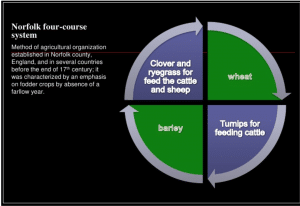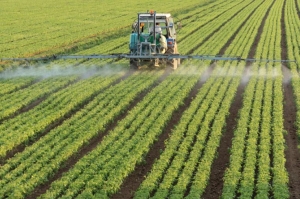The Importance of farming

Modern types of farming is killing us everyday, and we don’t even know it is happening.
It has been a slow process that is gathering momentum. We can see this in the dramatic rise of death from cancer often caused by the increased toxicity in the environment.
Of course it’s not all down to agriculture, but at the end of the day the food we eat has a big impact on our bodies and if it contains harmful substances, these are going to have a negative effect on our health. The challenge has been and that the changes have been slow, subtle and cumulative.
Food is balanced in nature

If you take food as it was originally created, such as whole grain of wheat, you will see that it contains a balance of protein, carbohydrate, fats, vitamins, minerals, trace elements and essential nutritional factors.
To some extent, the amount of these components depend on the land in which the wheat is grown, because clearly if the land is deficient in a particular mineral the crop will be deficient as well.
There are certain parts of the country where the soil type creates certain deficiencies, but for the most part the soil in its natural state, when used with a crop rotation, is very balanced.
The benefits of organic farming

The way farming used to be, you had to rotate your crops in order for them to grow. Many farmers would start with a crop of wheat which they would plant after they had plowed grassland. The grassland could have been in grass for five or six years. Wheat is quite hard on the land so they would follow the wheat with a crop of peas, sugar beet, potatoes, or some other root crop. The next year the land would be returned to a cereal, perhaps barley, and then maybe finished off with oats or another root crop in the 4th year, before being returned to grass. This is known as the ‘Norfolk’ rotation.
Today we would call this organic farming, but in years gone by this was the only way and everyone could experience the benefits of organic food.
During this process farmyard manure would be applied to the land, recycling the dung from the cattle that grazed the grass and keeping the whole balance in the soil. The grassland itself was sown with clover which is a nitrogen-fixing species that brings fertility into the land. This was the way our food was grown 80 years ago. If you didn’t practice a good crop rotation, your crops died. As a result, food was highly nutritious and was able to sustain and support vibrant health.
The Modern Way

Now let’s wind forward to the 21st century.
Our crops are now grown in the same field year after year after year and fertilized with artificial fertilizer. These fertilizers do not contain a balance of nutrients but only 3 major nutrients that force crops to grow.
Over time, the limited resources of minerals and trace elements in the soil become depleted and the crops get sick. Obviously minerals and trace elements cannot be in the plants if they’re not in soil and if they are not in the plants, they’re not going to be in the food that the plants produce, and even though the food may look very tasty and indeed even taste fine, its nutritional quality can be very poor.
Organic Vegetables

Your body needs a very wide range of minerals, trace elements and essential nutrients in order to function optimally. If some of these essential nutrients are not present, the cells simply cannot complete the task, and ill-health results.
Herein lies one of the key understandings in how you can take responsibility over your own health, and this provides the key to making major and significant adjustments to your health by adjusting what you eat.
You can experience the benefits of organic food and the benefits of organic farming and crop rotation by just being aware and making wiser choices.
So How Do you Know?

How do you know if a food is good for you?
Even organic food can cause a reaction in you if you have food sensitivities. In the world of conventional science there is no answer to this question. The best they can say is, use trial and error, but most medical people aren’t even aware of the presence of food sensitivities.
Fortunately for us there is a way of finding out very accurately very quickly and at no expense exactly what Your body likes and doesn’t like. This wonderful tool is called Kinesiology and you can learn how to do this through muscle testing in a single days training.
Click this link for lots of free videos and explanations on how the system works and find out how you can empower yourself to make wiser choices in just a few minutes. The training takes just a few hours but the benefits last for lifetime.
Interested at learning more about Kinesiology? Join the Kinesiology Workshop of your choice!

